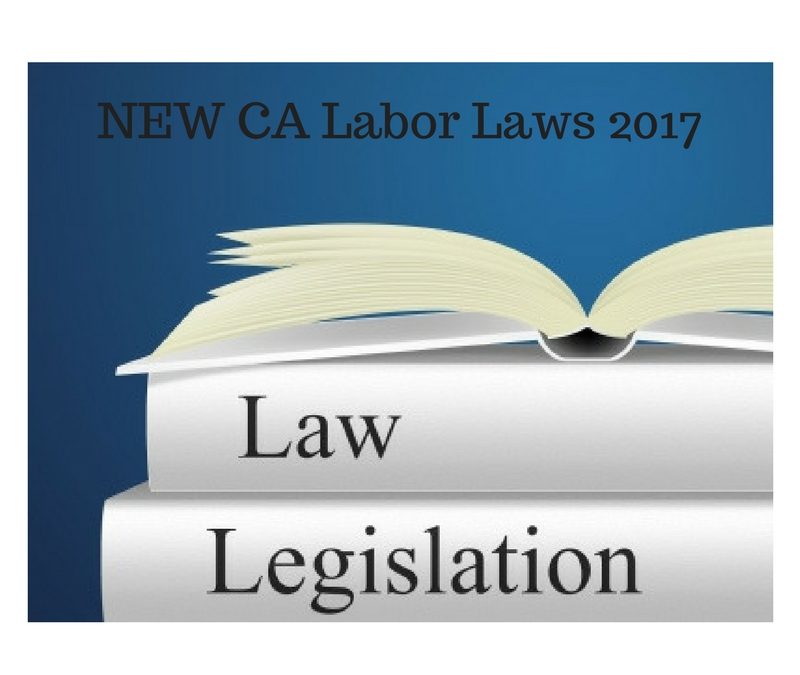There have been many changes to the labor laws in California that took effect January 1, 2017. The new laws listed below are pertinent to private businesses and will be put in place this year:
Smoking is prohibited in more places that before. Law ABX2-7 updates California Labor Code Section 6404.5. Smoking can no longer be in hotel lobbies and meeting rooms, bars, warehouses, employee break rooms, and in owner operated firms, even if it’s just the owner present.
All paid local government officials have to be trained on sexual harassment prevention, education and training due to AB 1661 being passed.
In order to correct pay disparity between male and female employees, AB 1676, the California Fair Pay Act has been amended to state that a previous salary does not (by itself) justify greater pay for an individual of either sex.
If an applicant has a juvenile record, potential employers can no longer ask or consider using it as a barrier to employment, according to AB1843, which updates Section 432.7 of the California Labor Code.
Section 230.1 was amended by AB 2337, stating employers who have workers that are victims of domestic violence, sexual assault or stalking are required to inform said people of their rights, in writing, upon hire, and to other employees if requested. Companies do not have to distribute information until the Commissioner of Labor publishes a form that complies with the law.
The minimum wage will be increased to $15 per hour over the span of 5 years (2017-2022), and will be adjusted with Cost of Living Adjustments (COLA’s) afterward. Firms with 25 or less employees have a year delay on the increases.
The Private Attorney Generals Act of 2004 (PAGA) has been amended. This gives California Labor and Workforce Development Agency several things:
- More investigation time and also more time to issue citations for labor code violators
- Additional oversight of PAGA actions
- Object to proposed settlements if they are not seen to be sufficient
- More money to investigate and issue citations of labor code, due to additional funding given by the filing fee requirement
Discriminating against someone’s legal immigration status is also prohibited. Potential employers cannot request additional or different forms, refuse to honor documents given that appear to be real, to not honor papers or authorizations for work based on immigration status (or term) of work, or twice investigate or verify an employees authorization to work in California. This amends SB 1001 by adding section 1019.1.
SB 1015 repeals a sunset clause in the Domestic Workers Bill of Rights, which was to expire January 1, 2017. This law regulates hours of work and overtime of domestic employees.
Gender pay disparities have been prohibited by act SB 1063, and also does not allow wage differentials for individuals based on ethnicity or race.
California Division of Occupational Safety and Health (Cal/OSHA) now has to develop indoor heat illness standards, due to SB 1167.
It is now mandated by SB 1234 that all employees that are residents have to be in a state-run plan for retirement savings, unless they already have one through their employer. Workers can opt-out if they so choose.
SB 1241 updates Section 925 of California Labor Code. No longer does an employee have to sue in another state if they work and live in California as a condition of employment. Individuals will be able to use California Law protections if a situation arises and they need to take legal action.
Due to SB 1732, on March 1, 2017, every single-user toilet has to be an all-gender toilet if they are in a business, public accommodation place, or government agency.
The Paid Family Leave act has been extended and no longer has a 7 day waiting period. This amends law AB 908. Other changes have been made to this law that are not listed. These changes will be in effect in 2018.
This information was previously published on Cpapracticeadvisor.com, written by Christopher W. Olmstead.
